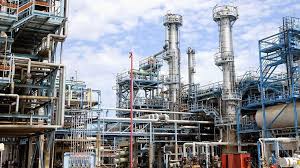The Port Harcourt Refining shutdown for maintenance will be for 30 days, it was learnt last night.
But officials gave the assurance that there will be no petrol scarcity during the period.
The Nigerian National Petroleum Company Limited (NNPCL) at the weekend halted operations to allow for checks on the equipment, raising fears of negative effect on petrol supply.
The stoppage of operations came six months after the November 26, 2024 completion of its $1.5 billion rehabilitation.
An official of the company told The Nation yesterday that it has made contingent arrangement to ensure seamless product (petrol) supply for the 30 days that the routine maintenance at the plant would last.
Allaying fears of disruption in petrol supply or product scarcity , the official said the NNPCL will rely on multiple sources to ensure that Nigerians do not experience any form of hardship during the overhaul.
The source said: “We have petrol stored in our reserves; we have Dangote Refinery to support the process with supply, these two sources will successfully cater for this period.
“But should it become unavoidable, the Nigerian Midstream Downstream Petroleum Regulatory Authority (NMDPRA) will issue import licences to marketers for the product to be brought in, although we do not envisage the situation getting to this point.”
The maintenance, it was learnt, is in tandem with international standard of ensuring smooth operation of refineries.
An insider’s source said: “Periodic checks are necessary to keep such facilities in top shape at all times. Usually, refineries are maintained between nine to 12 months. What the NNPCL has done is part of the maintenance schedule outlined for the refinery so that it can remain in top condition to continue to serve efficiently.
“Even brand new refineries usually go for maintenance between nine to 18 months after commencement of operations.”
Upon the completion of the maintenance, the Warri Refinery is expected to boost petrol supply as the facility would just be ready to kick start petrol production again.
According to our sources, the Warri Refinery is being hindered by a damaged part which cannot be sourced off the shelf.
“The problem with Warri Refinery is a bad component which the Original Equipment Manufacturer (OEM) has to manufacture for its replacement. The OEM said it takes 45 days to manufacture and deliver but there was a slight hitch which delayed the process; hopefully, it will be available soon and will complement supplies when the PHRC maintenance is completed,” the source said.
In a statement at the weekend, NNPCL Chief Corporate Communications Officer (CCCO) Femi Soneye described the shutdown as part of a planned maintenance and sustainability assessment aimed at ensuring optimal performance of the facility.
He said that updates about the development will be provided regularly through official channels.
The statement reads: “The Nigerian National Petroleum Company Limited (NNPC Ltd) wishes to inform the general public that the Port Harcourt Refining Company (PHRC) will undergo a planned maintenance shutdown.
“This scheduled maintenance and sustainability assessment will commence on May 24, 2025. We are working closely with all relevant stakeholders, including the Nigerian Midstream and Downstream Petroleum Regulatory Authority (NMDPRA), to ensure the maintenance and assessment activities are carried out efficiently and transparently.
“NNPC Ltd remains steadfast in its commitment to delivering sustainable energy security.
On November 26, last year, the NNPCL restarted the 210,000 b/d Port Harcourt refinery after three and a half years offline. Product loadings had begun after the plant’s smaller, 60,000 b/d capacity crude distillation unit (CDU) came into operation. The rehabilitation was handled by an Italian engineering firm, Maire Tecnimont.
The Port Harcourt refinery was shut in 2020 after several years of low capacity utilisation. NNPCL had previously said it expects the initial 60,000 b/d phase to produce 12,000 b/d of gasoline, 13,000 b/d of diesel, 8,600 b/d of kerosene, 19,000 b/d of fuel oil and 850 b/d of LPG in the first year of resumed operations.











